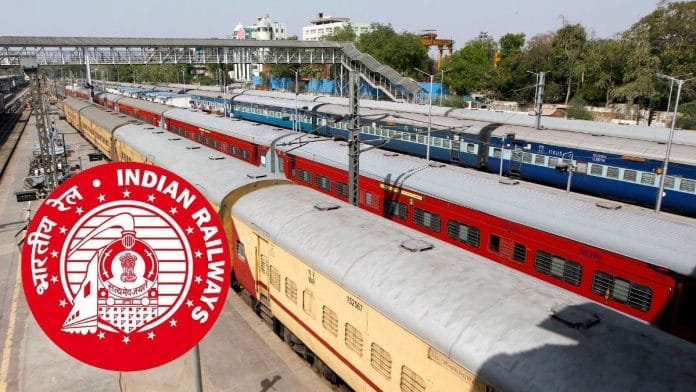New Delhi: Taking a U-turn on one of the last remaining reforms undertaken as part of an ambitious merger of railway services, the Centre has said that railway departments will once again be headed by officers belonging to the corresponding services.
In a bid to end the infamous “departmentalism” in the railways, in 2020, the Centre restructured the Railway Board so that, for instance, a traffic service officer could head the mechanical engineering department.
A gazette notification issued 7 November announced the turnaround.
According to the notification, a member-finance will now belong to the accounts service; member-infrastructure will belong to engineering or signal engineering service; member-operations & business development to the traffic service; member-traction & rolling stock to the mechanical engineering, electrical engineering or stores services; and the director-general of human resources to the personnel service.
The position of the director-general (safety) was left open to several services.
The logic behind the earlier reform, taken as part of the larger merger of railway services, was to end departmentalism in the railways, with each member thinking functionally and organisationally, rather than departmentally.
“Since the decision to already de-merge the services again had already been taken, this is a natural corollary. The merger had caused a lot of issues of safety and technical confusion since officers had lost the benefit of decades of specialisation in one service before heading it,” a senior railway service officer, on condition of anonymity, told ThePrint.
“The move hypothetically allowed an engineering service officer to head operations and business development, about which they would know woefully little. This was obviously a recipe for disaster.”
In another key change in the appointment procedure of members, the government said that a selection committee shall be constituted under the chairmanship of the cabinet secretary, with the secretary of the Department of Personnel and Training (DoPT) and the chairman of the Railway Board as members for the selection of the Railway Board.
Until now, members were chosen by the Appointments Committee of Cabinet (ACC) on the recommendation of the Railway Ministry.
Now, another layer of screening has been added. “The Selection Committee shall scrutinise the applications and give its recommendation post-wise for consideration of ACC,” the notification states. “The Selection Committee shall devise its own procedure to assess the suitability of the candidates.”
The move has led to concerns of over-bureaucratisation of the selection process. “One problem is that they have left it to the Selection Committee entirely to come up with their own procedure of assessment. This is bound to lead to some arbitrariness,” the officer quoted above said. “The second problem is that they have increased the steps in the appointment procedure, making it unnecessarily lengthy.”
The officer further said, “Again, for all other ministries and departments, the ACC directly makes appointments rather than going through committees.”
ThePrint contacted the Railway Ministry spokesperson for a comment on the decision via phone call and WhatsApp, but did not receive a response.
The government also significantly tweaked the eligibility criteria for general managers (GMs) in railway zones, allowing only those officers who have two years of service remaining to be considered for the post.
Last month, ThePrint had reported that the Railway Ministry had written to the DoPT requesting the change.
A GM is the highest rank in the railway bureaucracy—equivalent to chief secretary in the Indian Administrative Service (IAS) or Director-General of Police (DGP) in the Indian Police Service (IPS)—at the level of zones. The Indian Railways is divided into 18 zones.
While no such minimum-tenure rule exists for the position of chief secretary, IPS officers must have a minimum of six months of service left to become a DGP.
The move has created a stir in the railways, with officers of the civil services within the railways—accounts, traffic and personnel departments—fearing that it would put them at a disadvantage vis-à-vis officers of the engineering services.
Civil service officers enter service through the Civil Service Examination of the Union Public Service Commission (UPSC), while engineering service officers enter through the Engineering Services Examination.
It is widely believed that officers of the civil services enter the service at later ages than those of the engineering service. Therefore, it is feared that the move could be a major disadvantage to the former, several of whom will be disqualified from the highest post in the railway zones.
“In no other service does a two-year rule exist,” an officer had told ThePrint. “This could lead to a lot of trouble within the railway hierarchy because there will be so many senior officers who would have to serve under their junior just because they did not have two years left in service.”
According to a follow-up notification issued by the ministry on 12 November, in order to apply for the post of GM, an officer will have to delineate top five challenging situations faced by them, description of top five contributions to the railways in their lifetime, top five situations handled as a team member, top three situations of leading a team, and top three system changes done by the officer.
(Edited by Insha Jalil Waziri)
Also Read: Fatal fall from crowded train, why Madhya Pradesh HC asked Railways to pay compensation to passenger






